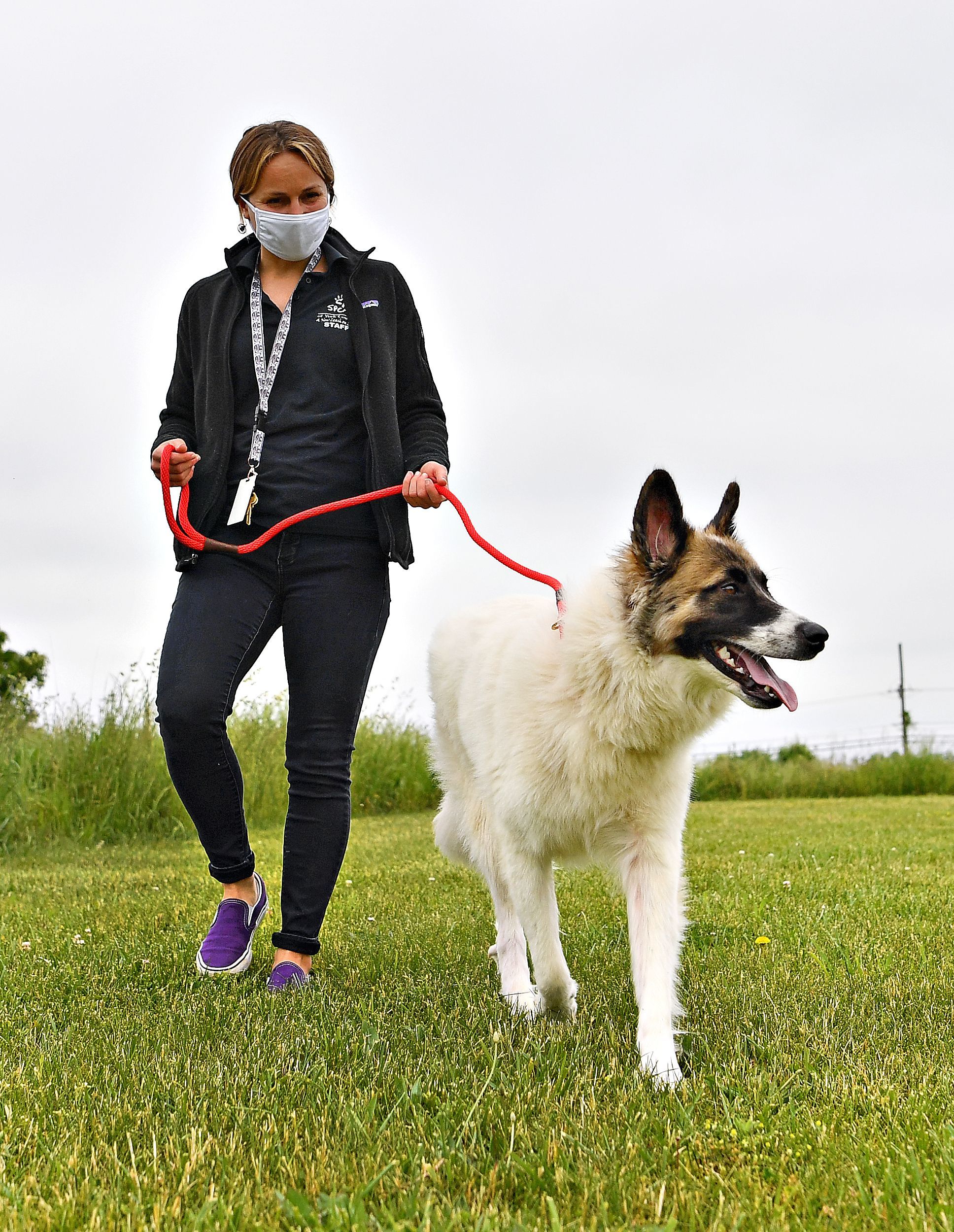
Photo provided by Dawn J. Sagert/The York Dispatch
If you suffer from seasonal allergies, you know how tough they can be. Just like us, our pets can suffer from allergies as well, especially dogs. Both spring and fall can trigger many environmental allergies. Dogs can be allergic to things such as plant and tree pollen, mold spores, grass, weeds, etc. Symptoms are similar to those experienced by people, such as irritated eyes and sneezing; however, itchiness and irritation can lead to licking and scratching in our furry friends. Secondary skin infections may occur if the dog has licked and scratched at themselves excessively.
So, here are five tips that can help alleviate mild seasonal allergies:
1. Avoid walking your dog in the early morning or late afternoon when pollen levels are at their highest. Also, try to stay away from fields and parks where offending plants are common.
2. Regularly change air filters in your home to decrease the number of airborne allergens. Vacuum at least once a week, also remembering things like curtains and rugs that have picked up dust and pollen. Air conditioners and dehumidifiers can help to remove moisture from the air, making it harder for mold to grow.
3. Surfaces that your dog sleeps on regularly can become covered in allergens, so making sure to wash these in hot water weekly is important. In addition, any soft toys your dog plays with should be washed frequently.
4. Bathing your dog with a gentle, hypoallergenic shampoo such as oatmeal or aloe is a good way to decrease allergens on their coat and also help prevent dry, itchy skin.
5. Supplements such as fish oil or fatty acids (omega-3 and omega-6) have been shown to reduce itchiness and improve overall skin health. Please consult with your veterinarian regarding the proper dosage for your dog’s weight.
If these tips do not help and your dog is excessively licking, scratching, and chewing; or has red and irritated skin or hair loss, please make an appointment to see your veterinarian. They will be able to provide treatments and medications to give your dog relief.








